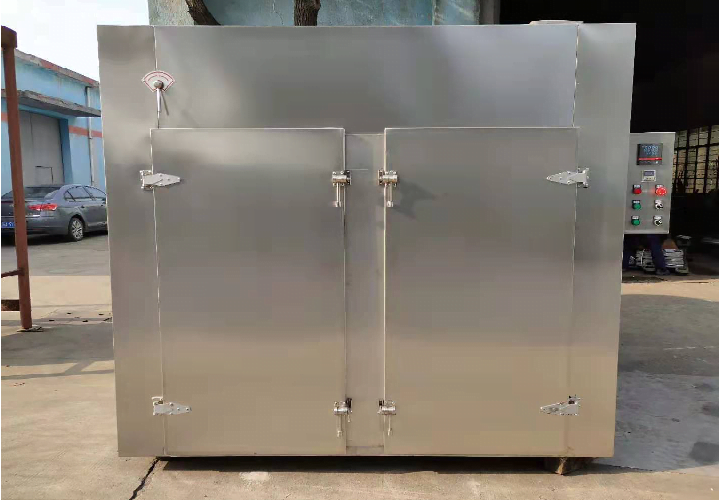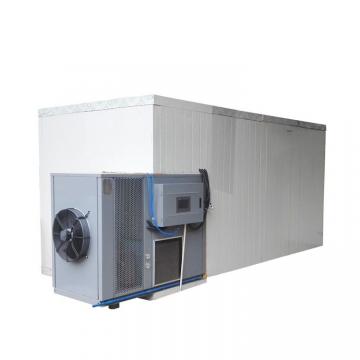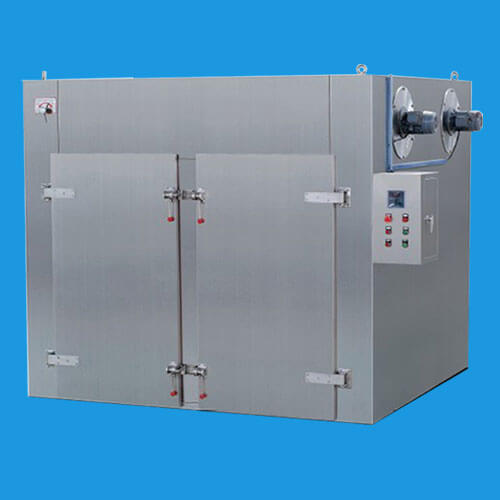
Content Menu
● Introduction
● The Importance of Food Drying in Nigeria
● Types of Food Drying Machines Available in Nigeria
>> 1. Industrial Food Dryers
>> 2. Fruit Drying Machines
>> 3. Vegetable Dehydration Equipment
>> 4. Solar Food Dryers
>> 5. Energy-Efficient Food Dehydrators
● Benefits of Food Drying Machines in Nigeria
>> 1. Reduced Post-Harvest Losses
>> 2. Increased Market Opportunities
>> 3. Value Addition
>> 4. Year-Round Availability
>> 5. Improved Food Safety
● Challenges and Future Outlook
>> 1. Initial Investment Costs
>> 2. Energy Infrastructure
>> 3. Technical Knowledge and Maintenance
>> 4. Quality Standards and Certification
● Conclusion
● Frequently Asked Questions
>> 1. What are the main types of food drying machines available in Nigeria?
>> 2. How do food drying machines help reduce post-harvest losses in Nigeria?
>> 3. Are solar food dryers effective in Nigeria?
>> 4. What are the main challenges in adopting food drying machines in Nigeria?
>> 5. How can food drying machines contribute to Nigeria's agricultural economy?
Introduction
In recent years, Nigeria has witnessed a significant transformation in its agricultural sector, with food drying machines playing a pivotal role in this revolution. As Africa's most populous country and a major agricultural producer, Nigeria faces unique challenges in food preservation and post-harvest management. The introduction and widespread adoption of food drying machines have emerged as a game-changing solution, addressing these challenges head-on and opening up new possibilities for farmers, entrepreneurs, and consumers alike.
The Importance of Food Drying in Nigeria
Nigeria's diverse climate and rich agricultural heritage have long made it a powerhouse of food production in West Africa. However, the country has historically struggled with significant post-harvest losses due to inadequate preservation techniques. Traditional sun drying methods, while cost-effective, are often unreliable and can lead to contamination and quality degradation.
Enter the food drying machine. These innovative devices have revolutionized the way Nigerians approach food preservation, offering a more efficient, hygienic, and consistent method of drying a wide variety of agricultural produce. From fruits and vegetables to grains and herbs, food drying machines in Nigeria are helping to extend shelf life, maintain nutritional value, and create new market opportunities for dried goods.
Types of Food Drying Machines Available in Nigeria
The Nigerian market offers a diverse range of food drying machines, catering to different scales of operation and specific needs. Let's explore some of the most popular types:
1. Industrial Food Dryers
Large-scale operations often opt for industrial food dryers, which can handle substantial volumes of produce. These machines are designed for continuous operation and are ideal for commercial food processing facilities. Industrial food dryers in Nigeria come in various configurations, including tray dryers, tunnel dryers, and belt dryers, each suited to different types of produce and production requirements.
2. Fruit Drying Machines
Specialized fruit drying machines have gained popularity among Nigerian farmers and entrepreneurs looking to tap into the growing market for dried fruits. These machines are optimized to preserve the flavor, color, and nutritional content of fruits while achieving the desired level of dehydration. From mangoes and pineapples to bananas and pawpaws, fruit drying machines are helping to reduce waste and create value-added products.
3. Vegetable Dehydration Equipment
Nigeria's vegetable farmers are increasingly turning to dedicated vegetable dehydration equipment to extend the shelf life of their produce. These machines are designed to handle the unique moisture content and cellular structure of various vegetables, ensuring optimal drying without compromising quality. Popular applications include drying tomatoes, peppers, onions, and leafy greens.
4. Solar Food Dryers
In a country blessed with abundant sunshine, solar food dryers have emerged as an eco-friendly and cost-effective solution for small to medium-scale operations. These dryers harness the power of the sun to dehydrate food, making them particularly attractive in rural areas with limited access to electricity. Solar food dryers in Nigeria range from simple DIY constructions to more sophisticated commercial models, offering a sustainable approach to food preservation.
5. Energy-Efficient Food Dehydrators
As energy costs continue to be a concern for many Nigerian businesses, energy-efficient food dehydrators have gained traction in the market. These machines are designed to maximize drying efficiency while minimizing power consumption, making them an attractive option for both small-scale producers and larger operations looking to reduce operating costs.

Benefits of Food Drying Machines in Nigeria
The adoption of food drying machines in Nigeria has brought about numerous benefits across the agricultural value chain:
1. Reduced Post-Harvest Losses
One of the most significant advantages of food drying machines is their ability to dramatically reduce post-harvest losses. By quickly and effectively removing moisture from produce, these machines help prevent spoilage and extend shelf life, allowing farmers to preserve a larger portion of their harvest.
2. Increased Market Opportunities
Dried foods have opened up new market opportunities for Nigerian producers, both domestically and internationally. The extended shelf life and reduced transportation costs of dried goods make it easier for farmers to reach distant markets and tap into export opportunities.
3. Value Addition
Food drying machines enable producers to add value to their raw agricultural produce. Dried fruits, vegetables, and herbs often command higher prices than their fresh counterparts, allowing farmers to increase their income and profitability.
4. Year-Round Availability
By preserving seasonal produce, food drying machines help ensure a more consistent year-round supply of various foods. This stability benefits both consumers and the food processing industry, reducing price fluctuations and improving food security.
5. Improved Food Safety
Modern food drying machines in Nigeria are designed with food safety in mind, offering controlled environments that minimize the risk of contamination. This is a significant improvement over traditional open-air drying methods, which are susceptible to dust, insects, and microbial growth.

Challenges and Future Outlook
While the adoption of food drying machines in Nigeria has been promising, several challenges remain:
1. Initial Investment Costs
The upfront cost of purchasing and installing food drying machines can be prohibitive for some small-scale farmers and entrepreneurs. However, as the technology becomes more widespread and locally manufactured options emerge, prices are expected to become more accessible.
2. Energy Infrastructure
Inconsistent power supply in some parts of Nigeria can pose challenges for operating electric food drying machines. This has led to increased interest in solar and hybrid drying solutions, as well as energy-efficient models that can operate on alternative power sources.
3. Technical Knowledge and Maintenance
Proper operation and maintenance of food drying machines require technical knowledge that may not be readily available in all areas. Addressing this gap through training programs and local capacity building will be crucial for the long-term success of food drying technology in Nigeria.
4. Quality Standards and Certification
As the market for dried foods grows, establishing and enforcing quality standards will be essential to ensure consumer safety and build trust in Nigerian dried products, both domestically and internationally.
Despite these challenges, the future outlook for food drying machines in Nigeria is highly promising. As awareness of the benefits grows and technology continues to improve, we can expect to see wider adoption across the country. This trend is likely to contribute significantly to reducing food waste, improving food security, and creating new economic opportunities in the agricultural sector.
Conclusion
Food drying machines have emerged as a transformative technology in Nigeria's agricultural landscape. By addressing the critical issue of post-harvest losses and opening up new market opportunities, these machines are playing a vital role in modernizing the country's food processing capabilities. As Nigeria continues to strive for food security and agricultural self-sufficiency, the importance of food drying machines is only set to grow.
From small-scale solar dryers to large industrial dehydrators, the diverse range of food drying solutions available in Nigeria caters to various needs and scales of operation. As the technology evolves and becomes more accessible, it has the potential to empower farmers, stimulate rural economies, and contribute to the overall development of Nigeria's agricultural sector.
The journey of food drying machines in Nigeria is still in its early stages, but the impact is already being felt across the value chain. With continued investment, innovation, and support, these machines are poised to play a crucial role in shaping the future of food preservation and processing in Nigeria, contributing to a more resilient and prosperous agricultural sector.

Frequently Asked Questions
1. What are the main types of food drying machines available in Nigeria?
Answer: The main types of food drying machines available in Nigeria include industrial food dryers, fruit drying machines, vegetable dehydration equipment, solar food dryers, and energy-efficient food dehydrators. Each type is designed to cater to different scales of operation and specific drying needs.
2. How do food drying machines help reduce post-harvest losses in Nigeria?
Answer: Food drying machines help reduce post-harvest losses by quickly and effectively removing moisture from produce, preventing spoilage and extending shelf life. This allows farmers to preserve a larger portion of their harvest, reducing waste and increasing overall productivity.
3. Are solar food dryers effective in Nigeria?
Answer: Yes, solar food dryers are particularly effective in Nigeria due to the country's abundant sunshine. They offer an eco-friendly and cost-effective solution for small to medium-scale operations, especially in rural areas with limited access to electricity.
4. What are the main challenges in adopting food drying machines in Nigeria?
Answer: The main challenges include high initial investment costs, inconsistent power supply in some areas, the need for technical knowledge and maintenance, and the establishment of quality standards and certification processes for dried products.
5. How can food drying machines contribute to Nigeria's agricultural economy?
Answer: Food drying machines can contribute to Nigeria's agricultural economy by reducing post-harvest losses, creating value-added products, opening up new market opportunities (including exports), ensuring year-round availability of seasonal produce, and improving food safety standards. This technology has the potential to increase farmers' incomes, stimulate rural economies, and enhance the country's food security.












